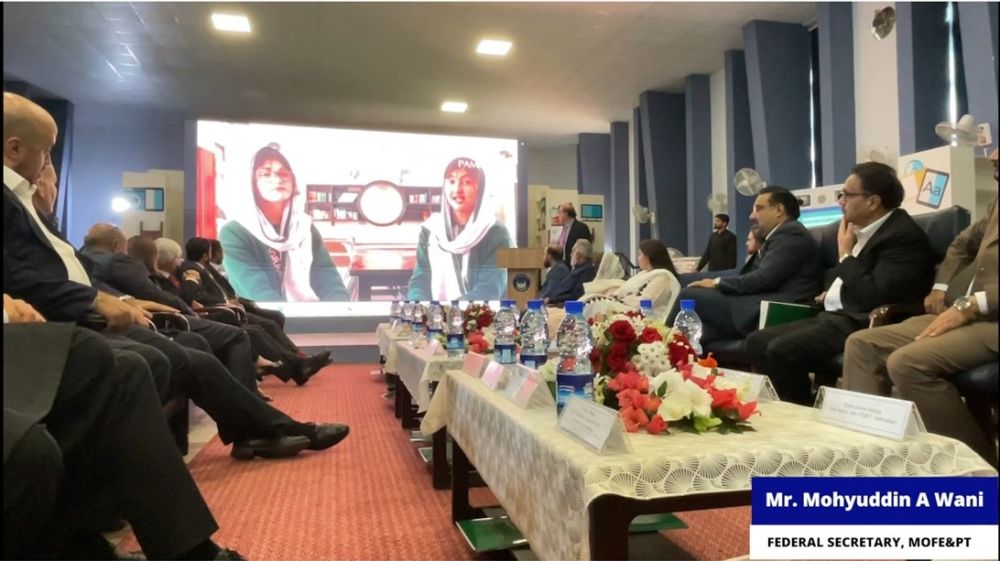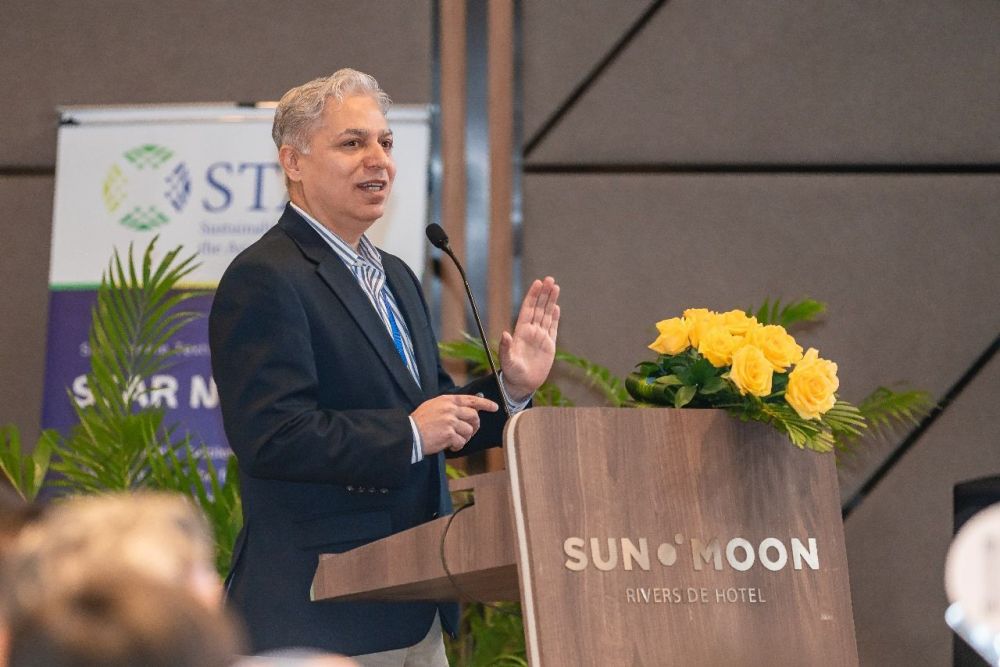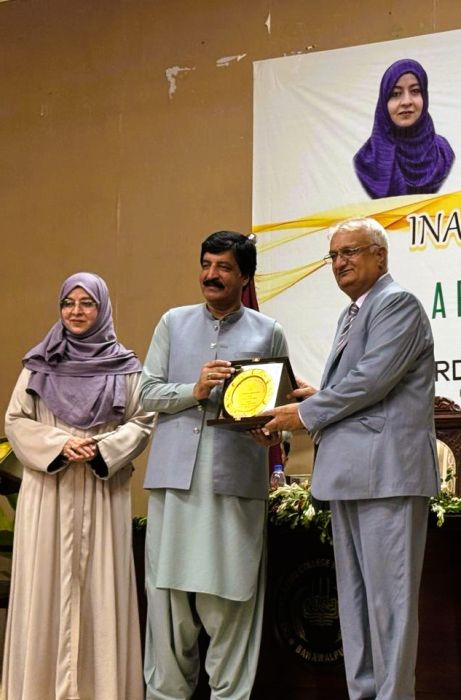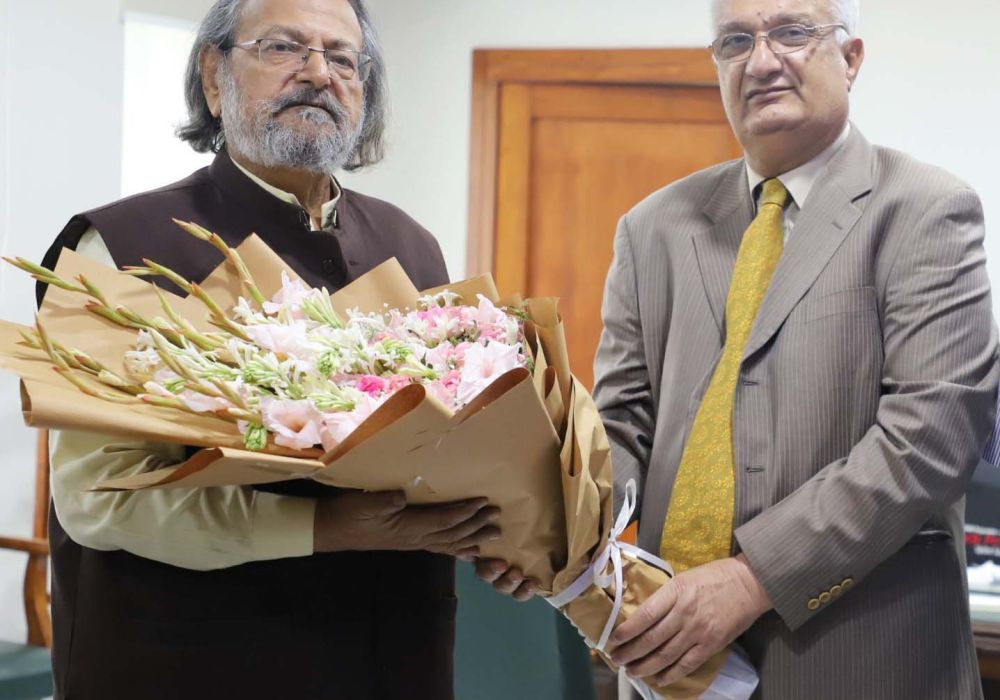A New Era of Opportunities for Pakistan's Youth Through Skill Development Initiatives - Secretary Mr. Mohyuddin Ahmad Wani
Posted 1 year ago
In a rapidly changing world, nations must invest in education and skills to remain competitive and ensure a prosperous future. Pakistan, a country with a young population, faces the critical challenge of equipping its youth with the necessary tools to navigate the global economy. Fortunately, the winds of change are blowing in the right direction.
Mr. Mohyuddin Ahmad Wani, Secretary of the Federal Ministry of Education and Professional Training, recently shared a compelling report on several initiatives to transform Pakistan's education and vocational training landscape.
As part of a broader effort, a high-level British delegation, including prominent figures such as
1. Lord Paul Boateng, Member of the House of Lords, Former Cabinet Minister, and Senior member of the Labor Government of the UK
2. Prof. Wendy Thomson, Vice–Chancellor, University of London
3. Vice Chancellor, University of Greenwich UK
4. Prof. Richard Grose, Deputy Vice-Chancellor – Queen Mary University UK
5. Mr. Tony Degazon, Director – City and Guilds UK
6. Dr. Amir Saadati, Executive Director - GEMS Middle East Holding
7. Dr. Alexander James, Executive Director GEMS Middle East Holdings
This visit, facilitated by the NAVTTC Chairperson, Ms. Gulmina Bilal, explored opportunities for collaboration in the realm of Technical and Vocational Education and Training (TVET) for aligning Pakistan's skill development programs with the needs of the modern global economy, an essential step toward sustainable development.
According to Mr. Wani, Pakistan's young population represents both a challenge and an immense opportunity. With the proper training and education, these young minds can become a driving force for innovation, economic growth, and social stability. However, to achieve this potential, the country's education system requires a significant overhaul, which is now underway by the Federal Ministry of Education and Professional Training.
The progress made so far is promising. In his briefing, Mr. Wani outlined a series of innovative programs already in place, each aimed at improving both access to education and quality improvement. For instance, implementing a free meal program in primary schools in Islamabad has led to a notable increase in attendance and enrollment, especially in underprivileged areas. This trend demonstrates the socio-economic barriers preventing many children from attending school and the government's commitment to addressing these challenges. During his tenure as Chief Secretary, Mr. Wani also demonstrated his successes by implementing a similar program in Gilgit-Baltistan.
Moreover, 16 degree colleges have been transformed and well-equipped for specialized digital and IT training, offering courses in cutting-edge fields such as artificial intelligence, cybersecurity, and blockchain. Collaborations with institutions like the National Skills University Islamabad, COMSATS University Islamabad, NUST, and NUML further reinforce this initiative on digital skills, ensuring that Pakistan's workforce gets ready for the jobs of tomorrow.
One of the most exciting developments is the creation of high-tech learning environments, including robotics labs and smart classrooms. These new spaces are designed to inspire creativity and innovation among students and provide them with practical skills that can be directly applied in the workforce. Such initiatives, combined with ongoing efforts to improve early childhood education, renovate schools, and provide free Wi-Fi, show a holistic approach to education reform that considers students' physical and intellectual needs.
Girls' education has also been a top priority, as evidenced by the introduction of pink buses offering free transportation for underprivileged girls. This initiative removes a significant educational barrier and sends a powerful message about the importance of gender equality in Pakistan's education system.
Teacher training programs are equally crucial in this effort. By providing educators with smartphones and integrating state-of-the-art learning management systems, the government ensures teachers have the tools to deliver high-quality instruction. Moreover, the ongoing development of teacher assessment systems and continuous professional development programs is essential for maintaining the quality of education nationwide.
The creation of smart classrooms, solar-powered schools in rural areas, and programs like evening schools and mind sports games further demonstrate the government's commitment to fostering a dynamic, inclusive, modern educational system.
One must recognize the critical role that international partnerships play in this transformation. The delegation from the United Kingdom shows a commitment to aligning Pakistan's education system with global standards. Collaborations with esteemed institutions such as Queen Mary University, the University of London, and City and Guilds allow Pakistan to learn from the best and adopt world-class education and vocational training practices. These partnerships bring expertise, resources, and best practices crucial for transforming Pakistan's education system.
Pakistan is on the cusp of an educational revolution that, if sustained, could transform the country's economic landscape. Mr. Wani concluded his presentation by highlighting a conversation between two students from Gilgit-Baltistan, a remote area in Pakistan, manifesting confidence and optimism for the future. Their story is a microcosm of what is possible when the right resources and opportunities are provided to youth.
Prof. Dr. Muhammad Mukhtar, Vice Chancellor of the National Skills University Islamabad, and Prof. Dr. Arshad Saleem Bhatti, Rector of the Virtual University of Pakistan, participated in this meeting. Several senior officials from the Ministry of Federal Education and Professional Training and the NAVTTC senior team, including Mr. Amir Jan, Executive Director, also attended.
Pakistan has made impressive strides in recent years, but the journey is far from over. The government, private sector, and international partners must continue to work together to ensure that every child in Pakistan has access to quality education and the skills needed to thrive in the 21st century.





